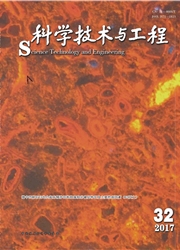

 中文摘要:
中文摘要:
人们对老年人的互联网使用行为知之甚少,将阻碍互联网在应对老龄化挑战中积极作用的发挥.为了理解老年人的互联网使用行为,构建了数据挖掘模型,以Statistica 7.0为工具对来自全国15个省份的调查数据进行了多维关联规则分析.研究结果表明老年人使用互联网解决信息需求的行为具有关联性,而满足娱乐需求的行为并没有被析出关联性.不同性别老年人的互联网使用行为模式有差异,年龄段与使用行为模式并无关联规则.收入水平和教育水平析出了相关的行为模式.互联网使用频率和使用时长关联了解决信息需求的互联网应用.主观态度与互联网应用的选择有关.研究结果为设计符合老年人需要的互联网服务提供依据,为制定互联网发展的公共政策提供决策参考.
 英文摘要:
英文摘要:
Seniors' internet use behavior is seldom known, which will spoil the positive role of internet in cop ing with challenges brought by aging society. In order to understand seniors' internet use behavior, a data mining model was constructed and Statistica 7.0 was employed for mutilassociation rule analysis based on survey data from 15 provinces of China. Research results revealed that there are associations between behaviors for information ac quiring, but behaviors meeting requirements for amusement are not found. There are differences on use behaviors between males and females, but users in different age stages show no differences on use behavior. There are associ ation rules between levels of income and behavior, education years and behavior. Internet use frequency and time are linked to information acquiring behaviors. Senior' s subjective attitude is related to the selection of Internet ap plications. These research results provide evidences for designing internetbased services meeting seniors' require ments and decisionmaking references for internet development.
 同期刊论文项目
同期刊论文项目
 同项目期刊论文
同项目期刊论文
 期刊信息
期刊信息
